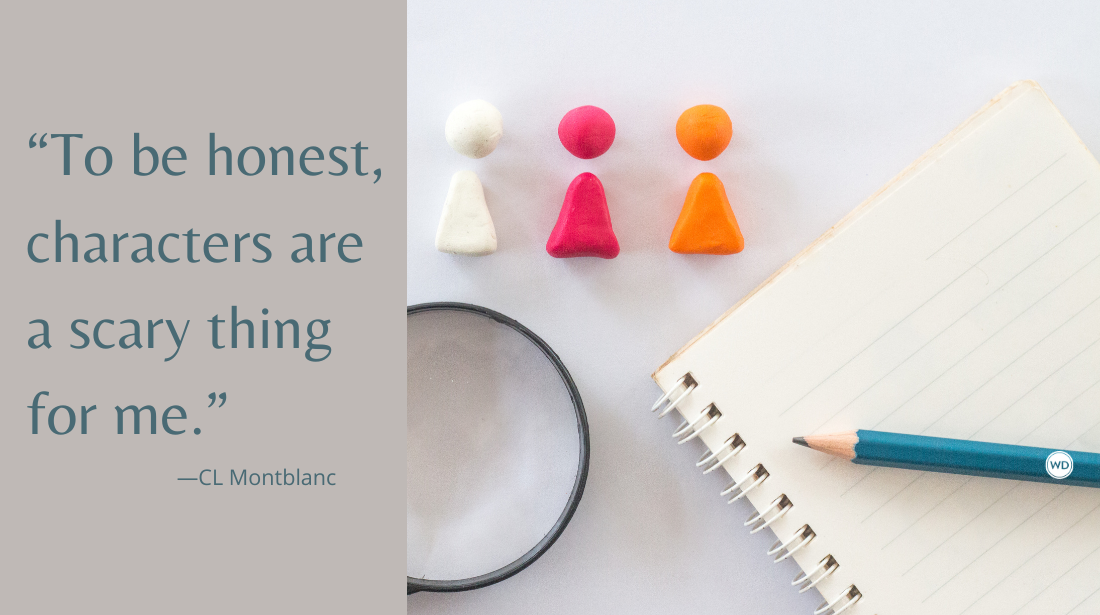Shame and Success: Blending Artistic Expression With Social Media
With social media being so pervasive in our lives, the relationship artists have with it is both inspiring and overwhelming. Here, author Francesca Giacco discusses how social media has played a part in her life and in her new novel, Six Days in Rome.
I used to be smug about Instagram. I thought of it as little more than a fun distraction—somewhere I could find cute photos of dogs, street style inspiration, screenshots of poems I’d never read before. When friends complained about compulsive scrolling and the time they wasted using it, I told myself I could open up or close the app whenever I wanted. And that was mostly true. I’d delete it when I needed a break, often for a week or two at a time. I didn’t miss it much when it was gone.
Then, I sold my debut novel, and my relationship to social media, the way it presents me with a certain version and vision of the world, changed.
My issues with Instagram are not unique, or even all that interesting. It sometimes makes me wonder if my life is boring, if I should redecorate my apartment, if I should be married by now. It occasionally has the ability to make me feel badly about the way I look and the choices I’ve made.
But when Instagram started to become a part of my creative life and a gauge of how my novel (a major product of that creative life) might be received, the comparisons and assumptions I made went beyond looks or travel plans. And, given how my novel’s main character sees herself and makes a living, I started to relate to her in unexpected ways, beyond what I could have anticipated while writing.
Emilia, the narrator of my novel, is a visual artist in her 30s. Despite her RISD education and specialization in portraiture and abstract painting, she has, somewhat unwittingly, found recognition and success on Instagram for satirical sketches, lightly and wittily making fun of women like herself. By finding this sweet spot between aspiration and self-deprecation, she taps into a kind of specialty, calling herself an “accidental anthropologist.” The large-scale work she loves to do recedes and rarely sells, when it sells at all.
IndieBound | Bookshop | Amazon
[WD uses affiliate links.]
When researching social media as an aspect of Emilia’s work, I paid close attention to a handful of artists who’d built followings on Instagram. Most of them women, most of them poking delicate fun at themselves. I followed them for the same reason people would follow Emilia’s work and life. I saw myself in them, recognized my insecurities in theirs. What must it feel like, I wondered as I wrote, to offer up so much of yourself to whoever decides to follow you?
In my novel, Emilia travels to Rome alone in the aftermath of a breakup. As she wanders the city, surrounded by art, her thoughts trace the path her career has taken, how unexpected and in some ways unwelcome it’s been. When it comes to creative success, the goal post, how we define that success, has a tendency to move. Suddenly, it’s no longer enough for Emilia to be making adequate money from her art to eat and pay rent. It needs to be the right sort of work and process and recognition. Sharing and comparing herself on social media exacerbates every element of this. It’s all too easy to spiral, start to feel shame for wanting too much and still being unsatisfied.
Commercializing and monetizing art, whether it’s a novel or a painting, breeds insecurity, raising questions like, Which parts of our creative instinct are valuable? Who gets to decide? In the introduction of her new book Body Work, Melissa Febos writes, “I have observed that we bring the best of ourselves to writing and that publishing brings out our worst.” I started reciting those words to anyone who asked me how I was feeling as my pub date grew closer.
I decided to weave Instagram into Emilia’s life as an artist because the app symbolizes a similar shift. Drawings that started as a side project took over her larger goals until they were directly opposed, all thanks to an algorithm and an audience looking for themselves in her work.
I’ve heard Instagram described many times as a “highlight reel,” that we need to always keep in mind we’re seeing the best of people’s lives, not the reality. What does it do to us when we’re able to curate ourselves so exactly, avoid the mess so thoroughly? To me, social media’s looming presence in our lives directly contradicts what it takes to make art. The editing it requires robs us of quiet, freedom, and focus. It forces us to fixate on what other people might think, creating a persona to match.
Emilia struggles with keeping up this persona, including the right amount of herself in her online presence. As a private person, one who already questions the validity of making money and gaining recognition in this way, she is constantly downplaying her own success—not just as less valid, but in conflict with who she is. Instead of accepting a career that may not be what she expected or even wanted, Emilia dissects it, until all that she’s created becomes an afterthought.
More than anything else, writing about social media became a way for me to illustrate this realization—that success and love and life often don’t look anything like we imagined they would. It’s humbling, frustrating, and also part of growing up. This is true for both Emilia and me.
Francesca Giacco is a graduate of Barnard College and the MFA program at Columbia University. She lives in New York. Six Days in Rome is her first novel.








